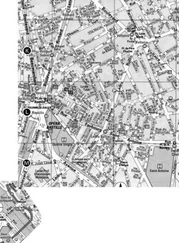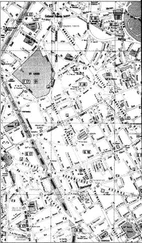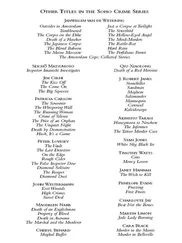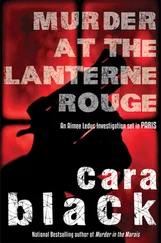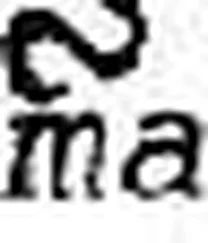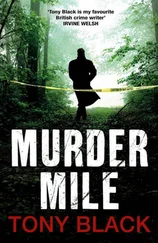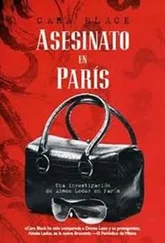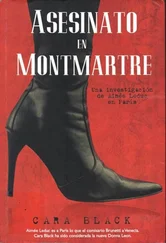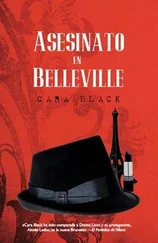Krzysztof wanted to tear it up. A faded piece of paper couldn’t create legitimacy.
“You refuse to remember that the Polish Parliament ended the monarchy in 1945. I’m not holding my breath until it returns. And neither should you.”
He stood and began to pace back and forth on the creaking wood floor.
“Why can’t you listen for once?” he said, his voice rising. “Forget this prewar romantic nostalgia. Everyone hid their titles during the Communist regime. Or they’d risk being imprisoned as ‘poster relics of decadent Western royalism.’ We were anathema to Stalin, Khrushchev, all of them, and most of all to the puppet Polish government. A five-zloty bribe, not a title, got one a larger bowl of soup in prison. Ask Papa. A name like mine in Russian class didn’t endear me to the teachers. Papa took a stand but he fought for freedom. Not a forgotten title.”
“You don’t have to shout, Krzysztof.”
“I’m sorry.”
Krzysztof watched his uncle. For the first time he noticed that his uncle looked unwell. The gauntness of his long face exaggerated the size of his eyes.
His uncle sighed. “You think I didn’t know privation in the war? It was worse than anyone imagines.”
Krzysztof stared. His uncle never spoke about his experiences in the war.
“It was worse than any Stalin-built concrete housing block, worse than standing on long lines for food.”
Krzysztof looked out the window, at the cones of yellow light shining on the quai.
“You glorify this country, Uncle,” he said. “But here people look down on us . . . call us dirty, lazy Poles, behind our backs. Only good enough to work as plumbers. I’ve heard it. You have, too, but you look the other way.”
“You forget, I joined the Polish government in exile,” his uncle said. “In London, I fought with the Free French forces and thanked the stars every night that de Gaulle let me.” He stood and leaned on his cane. “Colonel Lorrain let me out of his jeep at the Libération. Right here.” His uncle pointed to the quai. “I walked into this shell of a building. Paintings were tossed on the floor, and there was rubble left by the Gestapo everywhere. Like garbage.” He shook his head. “Only the French helped us. Never forget that. The other Allies let the Germans defeat the Warsaw uprising, starve the fighters, and flatten Warsaw. They let the Vistula run red with Polish blood.”
War stories. But that was past. The world faced new problems; he had to make his uncle understand. His uncle was his last hope.
“The Vistula runs with pollution now,” Krzysztof said. “In your day it was the Nazis. Now it’s globalization and the destruction of the ozone. Poland is democratic. They’re dealing with today’s issues, like everywhere else. But the North Sea and the Baltic are being ruined by toxic runoff. That’s why we must expose oil companies like Alstrom. Can you say it’s so different, Uncle?”
His uncle’s shoulders drooped.
Useless trying to talk to him. The cordovan leather chairs, the carved bas-relief in the ceiling, the crackled mirror—nothing ever changed here, least of all his uncle.
“You think I don’t understand?” his uncle asked. “You’re passionate. Good, I was, too. Yet tradition and beauty, they have a place. For me, that’s all there is left.” His chin sagged. “I want to clutch them, grasp at the ephemeral while I still can. A fragile thing of beauty—a painting, a strain of music—outlasts destruction. I want to celebrate that. And this country gave them back to me. I’m grateful.”
Krzysztof took his uncle’s arm. “How is it so different? Beauty exists in clean oceans, pristine mountains. And if we don’t stop the polluters, it will be gone. Forever. But you can change that.”
His uncle sat again. “A masterful plea, worthy of a young monarch. Not unlike Frederick Augustus, who mounted the campaign against the invaders.”
What did that mean? “Uncle, you’ll help me?”
His uncle leaned back in his chair. “You tell me I’m lost in the past, can’t move with the times. Krzysztof, I fought my war. I’m old. Too old to do anything.”
Krzysztof shook his head and pointed to a framed photo of his uncle receiving the Légion d’Honneur. “But your old comrade, Colonel Lorrain, is still in the Ministry.”
His uncle nodded. “So? He’s about to retire, at least that’s what he told me at dinner last week. Wants to bow out of all those committees he’s on. His wife serves a Boeuf Bourgogne cooked to perfection.”
“I want you to talk to him, to explain Alstrom’s cover-up and why the agreement must not be signed.”
“What do I know about that?”
“There’s nothing for me here,” Krzysztof said, shaking his head. “I’m wanted. I can’t finish my studies. If you won’t help me, I’m leaving.”
“It’s not like you to give up. You’re stubborn, like your father. It runs in the family.”
From somewhere on the quai, leaves rustled. The moon, half obscured by threads of clouds, shone outside the window.
“You’re the son I never had, Krzysztof.” His uncle’s jaw trembled. “Don’t leave.”
Krzysztof took his uncle’s age-spotted hand and held it. He felt its slight tremor. He reached over and hugged the old man, his strong arm clasping the thin shoulders.
“I’m sorry, Uncle.”
Krzysztof imagined taking the night train to Amsterdam, the crowded second-class compartment, anxiously waiting for a tap on the shoulder, then dawn breaking over the narrow canals and his search for a squat. He’d find another ecological group and try to make a difference. He’d start all over again. With nothing.
His uncle gripped Krzysztof’s hand as it rested on his shoulder. “Now what should I say to Colonel Lorrain—that is, if he’s there?”
Krzysztof stared at his uncle. Then he bent and kissed the withered cheeks.
“I suggest you invite him for an early dinner.” He pulled up a chair, took some paper and his uncle’s old nib pen, and dipped it in the black inkwell. “And here’s what you’ll tell him. We’ll craft it in your language, an appeal to an old comrade-in-arms. Get him to use the old boy network.”
A small smile played over his uncle’s lips.
“I have a feeling you’re dragging me into the new world, Krzysztof.”
“Into the new Poland, Uncle. Built on tradition, but embracing the present.” Krzysztof grinned and handed him his cell phone. “Together.”
Thursday Evening
AIMÉE STUMBLED IN the dark, feeling her way along the gritty floor of the sandstone tunnel. She tried René again. Miracle of miracles, the cell phone worked . . . but his line was busy.
If only her penlight worked. Or Hélène would come back.
Nelie stirred and mumbled, “ Non , Claude . . .”
“Tell me, Nelie,” Aimée urged, leaning against Nelie’s wet, matted hair. “Quick.”
“Relied on you . . .”
“What do you mean?” In the dark, Aimée put her arms around Nelie and propped her up.
“Don’t let him take my baby.”
Him? Her hand quivered. “You mean Claude? He’s the father? The spy?” Her surprise turned to panic. She remembered Vavin and his ringing phone and how she had found him in the closet and now Hélène’s words—“the bad man’s here”—and her disappearance.
He was here.
She felt Nelie go limp. Her arms ached but she had to pull the blanket faster; she had to reach the ladder.
Claude’s high-tech equipment, the flashy motorcycle he rode—all too upscale for a filmmaker who hadn’t had a film produced in years. A documentary filmmaker, sympathetic to MondeFocus, who offered a safe house. The safe house Nelie hadn’t taken advantage of.
Читать дальше

